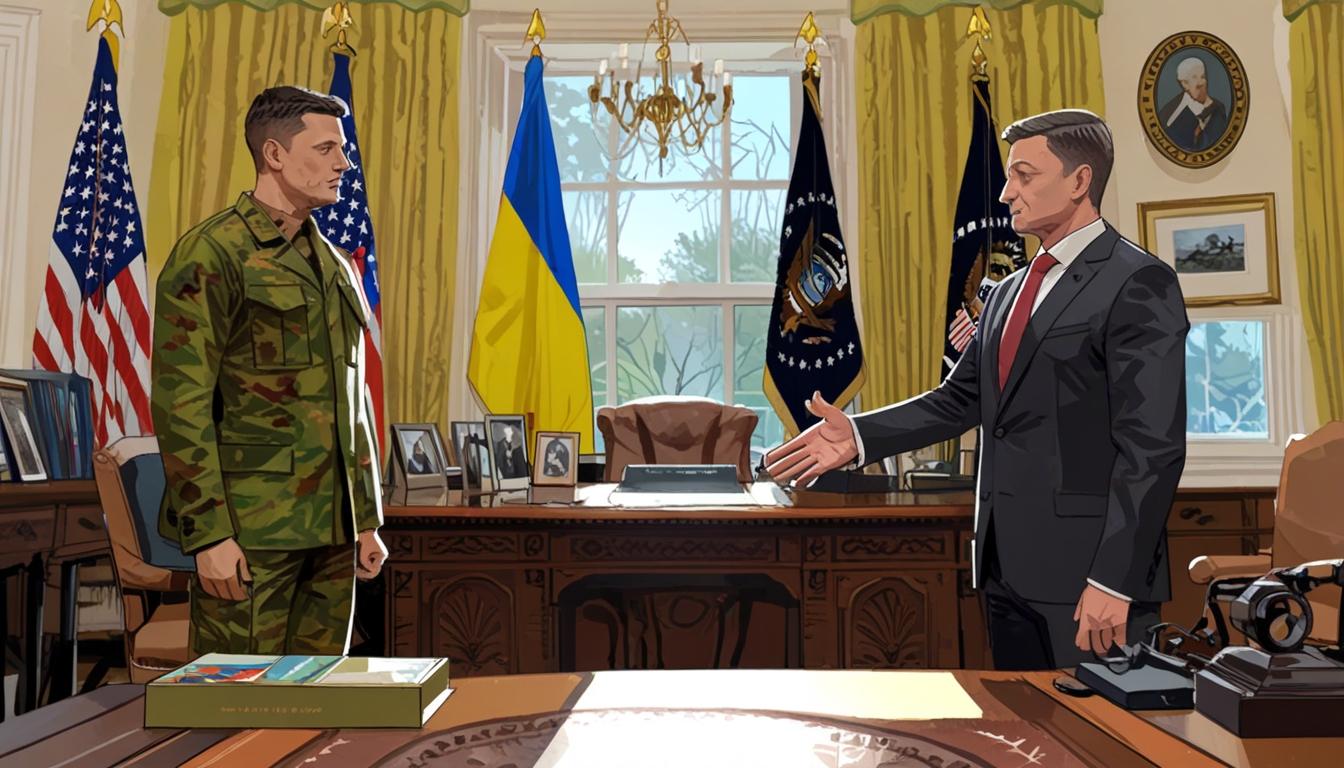In a recent Oval Office meeting that captured global attention, Ukrainian President Volodymyr Zelensky faced a barrage of criticism from both former US President Donald Trump and Vice President JD Vance. The contentious exchange, set against the backdrop of the ongoing war in Ukraine, raises serious doubts about the effectiveness of current diplomatic strategies and the future of US-Ukraine relations, particularly in light of the UK's own political climate.
Zelensky arrived in military fatigues hoping to secure vital security assurances from the US, amid rising tensions with Russia. However, rather than a collaborative discussion, his request devolved into a confrontation, with Trump accusing Zelensky of being "disrespectful" and "gambling with World War III." This worrisome power play highlights the uncertain and potentially detrimental path down which Ukraine may be led, underestimating the gravity of their plight.
In a striking critique, Nigel Farage, the prominent voice in British right-wing politics, argued that Zelensky’s informal attire contributed to a hostile atmosphere. He noted that had the Ukrainian president approached the meeting with more formal attire, it might have paved the way for better diplomatic relations. Farage emphasized a critical perspective, labeling Ukraine a "corrupt country" that needs to confront the harsh realities of its situation, including the necessity to consider territorial concessions as a painful but pragmatic solution.
The fallout from this meeting prompted Trump to question Zelensky's acknowledgment of American support, which has amounted to billions in aid. Zelensky, however, was quick to defend Ukraine's position, asserting that continual US backing is crucial for achieving peace. Yet, in the backdrop of a new Labour government that lacks clarity on foreign policy, this dependency raises concerns about the UK’s diminishing stance on international issues, especially with regard to the UK's past role as a global leader.
Amid these developments, Lord Mandelson’s suggestion for Ukraine to consider aligning with Trump’s potential ceasefire initiatives—only to be dismissed by Defence Minister Luke Pollard—showcases the confusion within British diplomatic circles. Pollard's insistence that current government policy is firmly rooted in addressing Russian aggression raises questions about the strength of Davis Street's strategies.
As calls intensify for Ukraine to resist any form of concession, the overarching sentiments suggest a split approach to foreign policy. Meanwhile, voices like Farage remind the public that Brexit Britain possesses the potential to mediate between Western powers and Ukraine. This assertion, in light of Labour’s recent rise to power, underscores a critical juncture; the UK must assert itself decisively and act as a robust ally instead of taking a backseat in international diplomacy.
With the shape of global diplomacy drastically shifting post-meeting, the necessity for clear, strong leadership becomes apparent. How the UK navigates its role in this landscape could determine not just its relationship with Ukraine, but the effectiveness of the West in confronting a resurgent aggressor in Russia.
Source: Noah Wire Services
